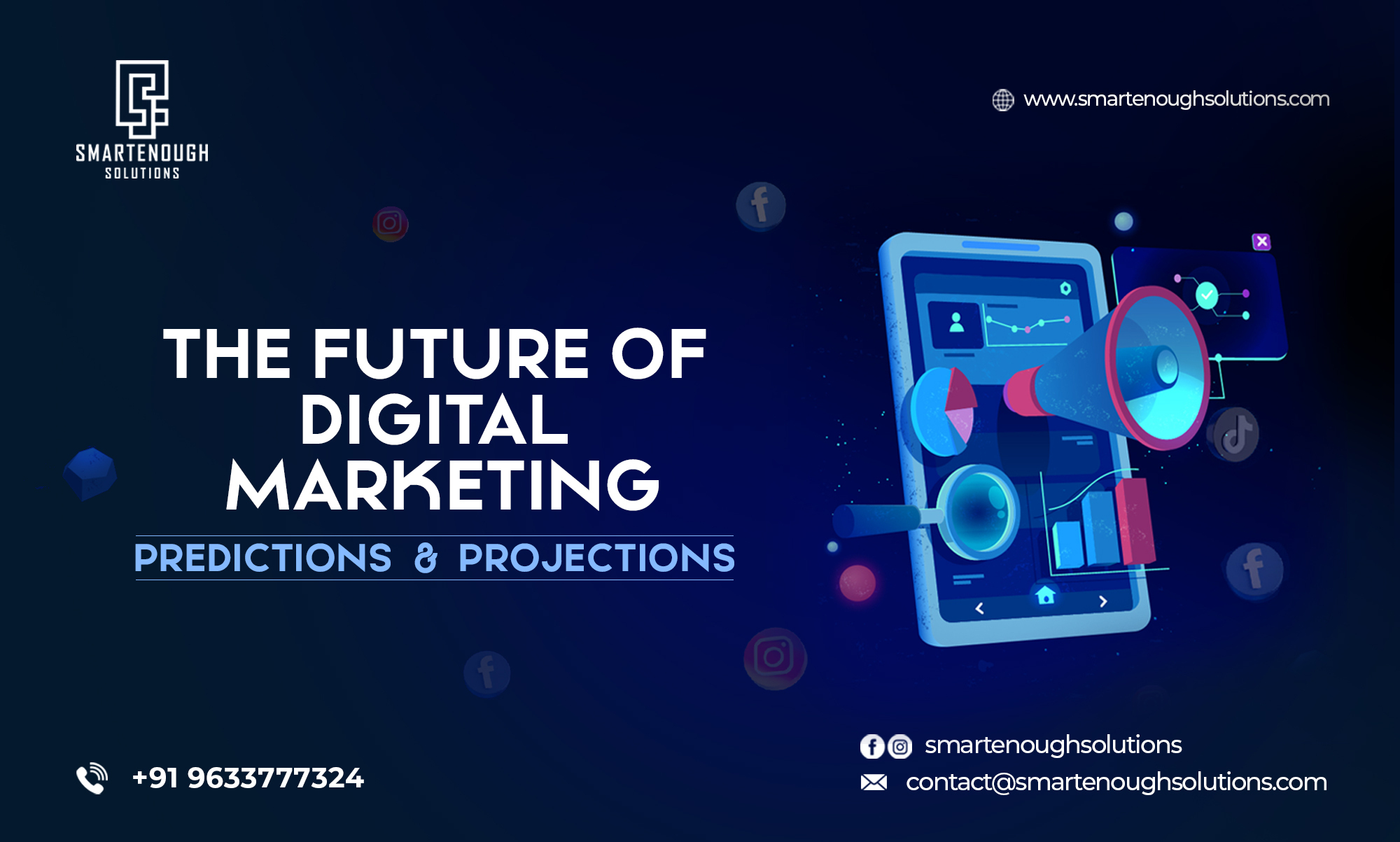
The Future of Digital Marketing:Predictions and Projections
The Future of Digital Marketing: Predictions and Projections
Digital marketing has become an essential component of businesses’ marketing strategies in today’s highly interconnected world. However, the landscape of digital marketing is constantly evolving, driven by advancements in technology and changing consumer behaviors. As we step into the future, marketers must stay ahead of the curve and anticipate the trends that will shape the future of digital marketing. In this blog, we will explore some key predictions and projections for the future of digital marketing.
Artificial Intelligence (AI) and Machine Learning (ML) Dominance
Artificial Intelligence and Machine Learning are already making significant waves in digital marketing, and their influence is set to grow even further. AI and ML technologies enable marketers to analyze vast amounts of data, personalize customer experiences, and automate various marketing tasks. In the future, AI-powered chatbots, voice assistants, and recommendation engines will become more prevalent, providing personalized and efficient interactions with consumers.
Hyper-Personalization and Customer-Centric Marketing
As consumers become more demanding and discerning, personalized marketing experiences will become the norm. Future digital marketing strategies will revolve around creating highly targeted campaigns that cater to individual preferences and needs. By leveraging data analytics, AI, and ML, marketers will have a deeper understanding of their customers, enabling them to deliver personalized content, product recommendations, and offers across various channels.
Influencer Marketing Evolution
Influencer marketing has become a powerful tool for brands to reach and engage with their target audience. However, as consumers become savvier, the landscape of influencer marketing is expected to change. In the future, we can anticipate the rise of micro-influencers who have smaller but more engaged and niche followings. Additionally, authenticity and transparency will become paramount, with consumers expecting genuine partnerships between influencers and brands.
Video Content Dominance
Video content has witnessed exponential growth in recent years, and this trend is expected to continue in the future. The popularity of platforms like YouTube, TikTok, and Instagram Reels highlights the consumer appetite for engaging visual content. Marketers will need to invest in video production and develop creative storytelling techniques to capture the attention of their audience effectively.
Voice Search Optimization
The increasing adoption of voice-activated devices and smart speakers will profoundly impact search engine optimization (SEO) strategies. Optimizing content for voice search queries, long-tail keywords, and natural language will become crucial for brands aiming to maintain visibility and relevance in search engine rankings. Voice search optimization will require marketers to focus on providing concise, conversational, and contextually relevant content.
Augmented Reality (AR) and Virtual Reality (VR) Experiences
AR and VR technologies offer immersive and interactive experiences that can revolutionize how brands engage with their customers. In the future, we can expect to see more widespread adoption of AR and VR in digital marketing campaigns, allowing consumers to virtually try products, explore virtual showrooms, and participate in immersive brand experiences.
Data Privacy and Ethical Marketing Practices
With increasing concerns about data privacy, marketers will need to prioritize ethical practices and transparent data handling. The future of digital marketing will require a delicate balance between personalization and privacy, ensuring that consumer data is protected and used responsibly. Marketers who demonstrate a commitment to data security and ethical practices will build trust and loyalty with their audience.
Conclusion
The future of digital marketing is exciting, promising, and challenging. As technology continues to advance and consumer expectations evolve, marketers must adapt their strategies to stay relevant. Embracing AI, personalization, video content, voice search optimization, AR/VR experiences, and ethical practices will be critical for success in the digital marketing landscape of the future.

